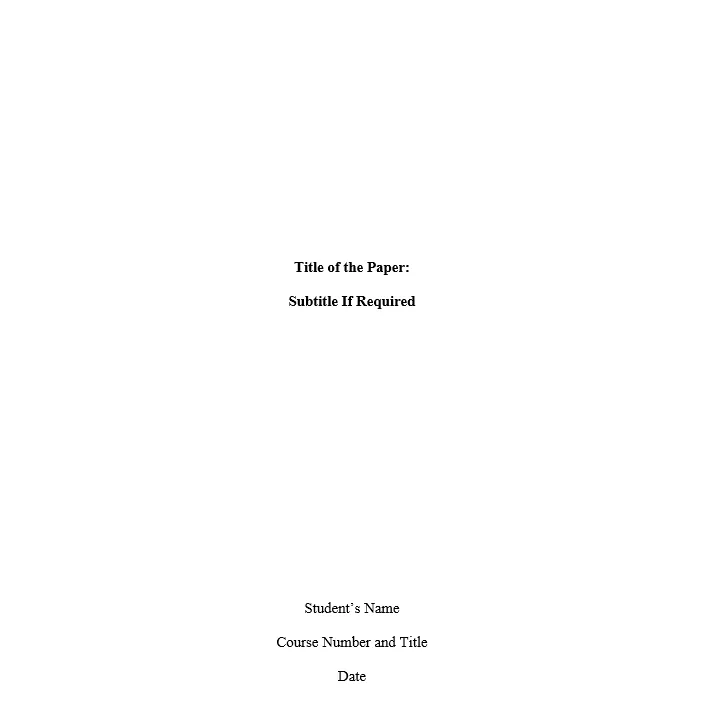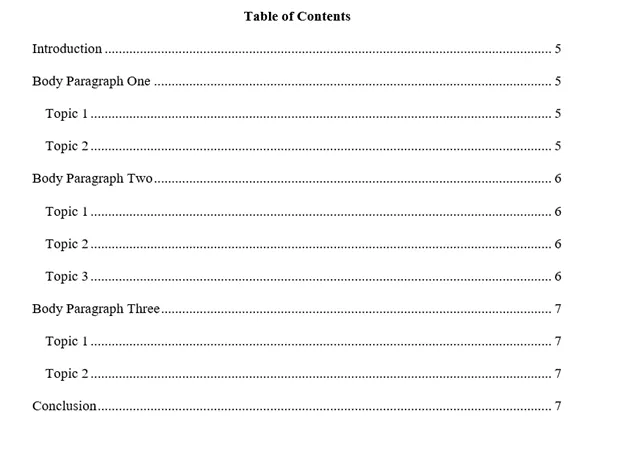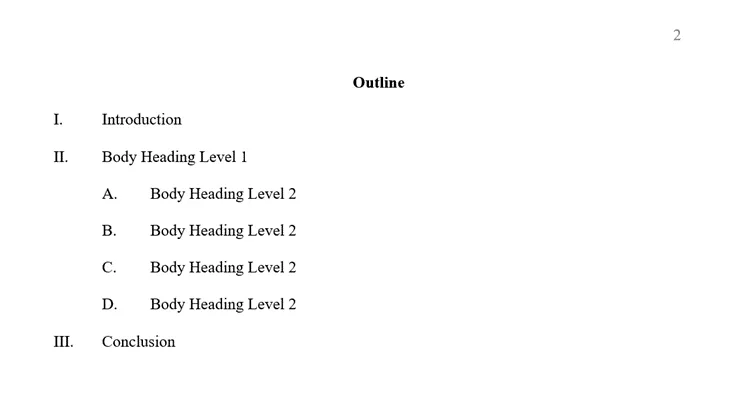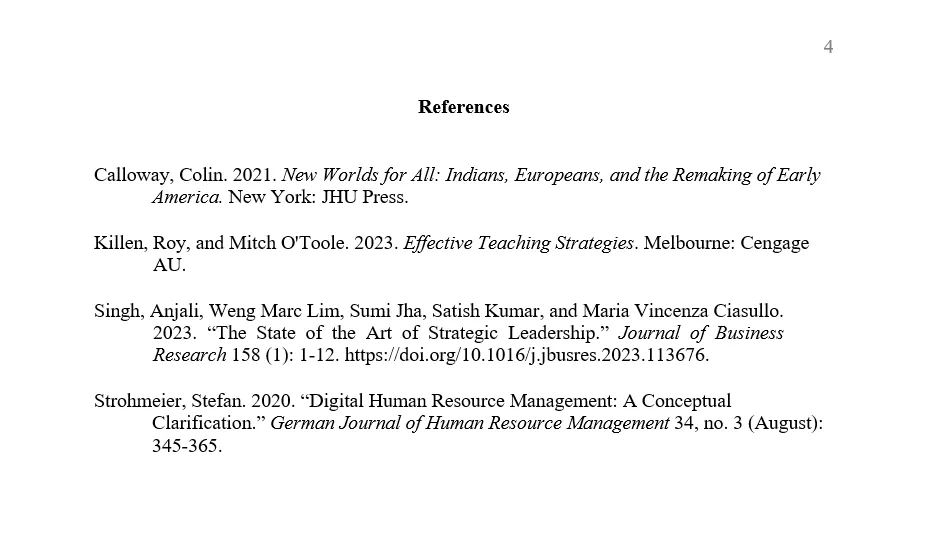Chicago (Author-Date) Citation Style Guide (17th ed.)
This piece of content has been developed by IvyPanda's editorial team.
No AI was involved in the creation process; only qualified experts contributed.
The information, facts, and sources presented in the text have been carefully checked and verified.
You are free to use it with proper referencing.
The Chicago style has two formats – the notes and bibliography style which uses footnotes or endnotes and a bibliography, and the author-date style which uses parenthetical in-text citations and a reference list. This citation method can seem complex, as it was originally developed for publishing academic works that require numerous citations. However, this guide from our experts simplifies Chicago style by clearly explaining both formats. It aims to help you comprehend this style and cite sources correctly according to the guidelines, whether using footnotes or parenthetical citations.
This guide is developed in line with The Chicago Manual of Style, 17th ed. Chicago: University of Chicago Press, 2017.
What is Chicago Citation Style?
The Chicago style is mostly used for books and other long publications, where it is inconvenient to go to the end every time you want to check a reference. As such, it features a detailed reference to the source in a footnote at the bottom of the page as well as the page number (if applicable). However, if you want to write a shorter paper using the format, there is an Author-Date version that functions in the same manner as APA and Harvard. The footnote-based variation is somewhat similar to Oxford due to its use of the same basic principles.
The Importance of Citing and Referencing
You may wonder why correct referencing is generally considered so important, taking precedence over most other aspects. Here are some reasons why this is usually the case, even in essays that may not seem so serious or important:
- Fundamentally, a person’s internal knowledge does not enable him or her to be at the forefront of research on his or her own. As such, references show that you know this and use others’ writings to help you.
- You show that your information comes from a source that can be considered trustworthy and unbiased by various scholars who read your work. Many readers will frown upon the use of data from websites unless they belong to large-scale agencies.
- To supplement this point, you have to format your references correctly due to the possibility that a wrongly formatted link will point to a nonexistent work. Referring to a fake work in the hopes that no one will check is a severe offense.
- Most organizations disapprove of plagiarism strongly, and citations are intended to prevent it. The practice can lead to consequences up to and including expulsion from whatever organization you write for and permanent reputation damage.
General Principles of Chicago Style Formatting
- The margins for Chicago style should be 1″ (2.54 cm) on all sides.
- Use Times New Roman 12 pt. font (unless the instructions require a different font), double-spaced.
- Name reference list either “References” or “Works Cited.”
- Alphabetize the sources on the reference list by the
last names of the authors (or, if no author or editor is given, by the title
or, failing that, a descriptive phrase). - For successive entries by the same author(s), translator(s), editor(s), or compiler(s), a 3-em dash replaces the name(s) after the first appearance. The entries are arranged chronologically by year of publication in ascending order, not alphabetized by title.
Chicago Title Page
The title is placed in the center of the page and written in bold. Use a colon to separate the main title from the subtitle. The subtitle (if any) should be written below the title line.
Student’s name, tutor’s name, other class information, and date are located in the lower part of the page, written in sentence case.
There should be no page numbers on the title page or page with the table of contents/outline.

Chicago (Author-Date) Outline
There are 2 basic types of outlines for you to choose (unless your tutor gives you a template): a traditional table of contents or a simple outline.
Example of a table of contents

Example of an outline

Chicago Headings and Subheadings
Level 1: Centered, Bold, Each Word is Capitalized
Level 2: Centered, Italicized, Capitalized
Level 3: Flush Left, Bold, Capitalized
Level 4: Flush left, regular font, sentence case
Level 5: Placed at the beginning of the paragraph. Can be italicized or bold, sentence case. A period is used to separate the subheading and the rest of the text in the paragraph.
Chicago Reference List
The reference list is inserted at the end of your paper; any source that you use needs to be included in the reference page and cited in the text.
Indent all lines after the first line in the entry (hanging indent); the lines should be indented one-half inch (1.27 cm) from the left margin of your paper.
- Do not forget to invert authors’ names: Last Name, First Name. Example: Clifton, Lucille.
- The reference list is always alphabetized by the first word in the reference entry (from A to Z).
- When alphabetizing titles or group names as authors, go by the first significant word (disregard a, an, the)
- In the titles of your sources in the text and on a reference page in Chicago style, all words except for articles and prepositions should be capitalized.
- Italicization is applied to books and periodical journals’ titles.
- Double quotation marks are used for the titles of articles and book chapters.

Chicago Style References
Chicago Book Citation
One author
Author’s Last Name, First Name. Year of Publication. Title of the Book. Publisher’s Location: Publisher’s Name.
Clifton, Lucille. 2023. The Book of Light. Washington: Copper Canyon Press.
Two or three authors
Author’s Last Name, First Name, First Name Last Name, and First Name Last Name. Year of Publication. Title of the Book. Publisher’s Location: Publisher’s Name.
Killen, Roy, and Mitch O’Toole. 2023. Effective Teaching Strategies. Melbourne: Cengage AU.
Noe, Raymond A., John R. Hollenbeck, and Barry Gerhart. 2020. Fundamentals of Human Resource Management. New York: McGraw-Hill.
Four or more authors
The names of first ten authors are listed and then “et al.” is added.
Author’s Last Name, First Name, First Name Last Name, First Name Last Name, First Name Last Name, First Name Last Name, First Name Last Name, First Name Last Name, First Name Last Name, First Name Last Name, First Name Last Name et al. Year of Publication. Title of the Book. Publisher’s Location: Publisher’s Name.
Bratton, John, Jeff Gold, Andrew Bratton, and Laura Steele. 2021. Human Resource Management. New York: Bloomsbury Publishing.
Corporate author
Organization Name. Year of Publication. Title of the Book. Publisher’s Location: Publisher’s Name.
World Health Organization. 2021. Violence Against Women Prevalence Estimates, 2018. Geneva: World Health Organization.
No author
Articles at the beginning of book titles are omitted to maintain alphabetical order.
Title of the Book. Year of Publication. Publisher’s Location: Publisher’s Name.
Mythology: Myths, Legends and Fantasies. 2003. Croydon: Aurora Metro Books.
Multiple works by the same author
The works are arranged in chronological order. A 3-em dash and period replace the author’s name in every subsequent reference entry.
Fromm, Erich. 2021. The Anatomy of Human Destructiveness. Harmondsworth: Penguin Books.
—. 2023. The Fear of Freedom. London: Routledge & Kegan Paul.
Multiple works published in the same year by the same author
The works are arranged in alphabetical order by title. The letters “a,” “b,” “c,” etc. follow the year of publication in each entry. These assist readers in distinguishing the sources cited parenthetically.
Brodsky, Joseph. 2021a. Less than One: Selected Essays. London: Penguin Press.
—. 2021b. On Grief And Reason: Essays. London: Penguin Press.
Edition other than first
Author’s Last Name, First Name. Year of Publication. Title of the Book. # ed. Publisher’s Location: Publisher’s Name.
Armstrong, Michael, and Stephen Taylor. 2020. Armstrong’s Handbook of Human Resource Management Practice. 15th ed. New York: Kogan Page Publishers.
Reprint edition
Author’s Last Name, First Name. (Year of Initial Publication) Year of Reprint Publication. Title of the Book. # ed. Initial Publisher’s Location: Initial Publisher’s Name. Reprint Publisher’s Location: Reprint Publisher’s Name. Citations refer to Reprint edition.
Austen, Jane. (1813) 2024. Pride and Prejudice. London: T. Egerton. Reprint, New York: Penguin Classics. Citations refer to the Penguin edition.
An edited book with no author
Editor’s Last Name, First Name, ed. Year of Publication. Title of the Book. Publisher’s Location: Publisher’s Name.
Helms, Marilyn M., ed. 2021. Encyclopedia of Management. 5th ed. Farmington Hills: Thomson.
Multivolume works
Author’s Last Name, First Name. Years of Publication. Title of the Book. # vols. Publisher’s Location: Publisher’s Name.
Harnack, Adolf. 2020. History of Dogma. Vol. 1. Eugene: Wipf and Stock Publishers.
Harnack, Adolf. 2020-21. History of Dogma. 2 vols. Eugene: Wipf and Stock Publishers.
A translated book
Author’s Last Name, First Name. Years of Publication. Title of the Book. Translated and edited by Editor/Translator’s First Name Last Name. Publisher’s Location: Publisher’s Name.
Dostoyevsky, Fyodor. 2023. The Idiot. Translated and edited by Alan Myers. Oxford: Oxford University Press.
Encyclopedia/dictionary
Editor’s Last Name, First Name, ed. Year of Publication. Title of the Book. Publisher’s Location: Publisher’s Name.
Swators, William H., Peter Kivisto, Barbara J. Denison, and James McClennon, eds. 2024. Encyclopedia of Religion and Society. Walnut Creek: AltaMira Press.
Chapter in an edited book
Author’s Last Name, First Name. Years of Publication. “Chapter Title.” In Title of the Book, edited by Editor’s First Name Last Name, pages–pages. Publisher’s Location: Publisher’s Name.
Yazıcı, Yasemin Erkan. 2023. “Conspiracy Theories at the Prague Cemetery.” In Architecture in Contemporary Literature, edited by Nevnihal Erdoğan and Hikmet Temel Akarsu, 102-112. Dubai: Bentham Science Publishers.
E-book / Online Book
Author’s Last Name, First Name. Year of Publication. Title of the Book. Publisher’s Location: Publisher’s Name. E-book Format.
Author’s Last Name, First Name. Year of Publication. Title of the Book. Publisher’s Location: Publisher’s Name. E-library Name.
Author’s Last Name, First Name. Year of Publication. Title of the Book. Publisher’s Location: Publisher’s Name. URL.
Austen, Jane. 2024. Pride and Prejudice. New York: Penguin Classics. EPUB.
Borel, Brooke. 2024. The Chicago Guide to Fact-Checking. Chicago: University of Chicago Press. ProQuest Ebrary.
Tolkien, John Ronald Reuel. 2024. The Hobbit or There and Back Again. New York: Harper Collins. https://www.readanybook.com/ebook/the-hobbit-17.
Chicago Article Citation
Journal article in print
Author’s Last Name, First Name. Year of Publication. “Title of the Article.” Full Title of the Journal volume number (issue number): page numbers.
Vrontis, Demetris, Michael Christofi, Vijay Pereira, Shlomo Tarba, Anna Makrides, and Eleni Trichina. 2022. “Artificial Intelligence, Robotics, Advanced Technologies and Human Resource Management: A Systematic Review.” The International Journal of Human Resource Management 33 (6): 1237-1266.
Strohmeier, Stefan. 2020. “Digital Human Resource Management: A Conceptual Clarification.” German Journal of Human Resource Management 34, no. 3 (August): 345-365.
Garg, Swati, Shuchi Sinha, Arpan Kumar Kar, and Mauricio Mani. 2022. “A Review of Machine Learning Applications in Human Resource Management.” International Journal of Productivity and Performance Management, no. 5, 1590-1610.
- If there is no volume but only an issue, write “no.” before the issue and separate the issue and pages with a comma.
- If Month/Season is known, include it in brackets after the issue number and write “no.” before the issue.
Online journal article
Author’s Last Name, First Name. Year of Publication. “Title of the Article.” Full Title of the Journal volume number (issue number): page numbers. DOI / URL.
Singh, Anjali, Weng Marc Lim, Sumi Jha, Satish Kumar, and Maria Vincenza Ciasullo. 2023. “The State of the Art of Strategic Leadership.” Journal of Business Research 158 (1): 1-12. https://doi.org/10.1016/j.jbusres.2023.113676.
Newspaper and magazine articles in print
Author’s Last Name, First Name. Year of Publication. “Title of the Article.” Full Title of the Newspaper/Magazine, Month Date, Year,page numbers.
Chavkin, Sasha, Caitlin Gilbert, Anjali Tsui, and Anahad O’Connor. 2024. “As Obesity Rises, Big Food and Dietitians Push ‘Anti-Diet’ Advice.” The Washington Post, April 3, 2024, 12-14.
The Washington Post. 2024. “Should I Take a Multivitamin? Here’s What the Science Says.” April 1, 2024, 1-4.
If there is no author, the magazine/newspaper title stands for the author.
Online newspaper and magazine articles
Author’s Last Name, First Name. Year of Publication. “Title of the Article.” Full Title of the Newspaper/Magazine, Month Date, Year. URL.
Farivar, Cyrus. 2024. “How TikTok Shop Became the Internet’s Favorite New Dollar Store.” Forbes, April 4, 2024. https://www.forbes.com/sites/cyrusfarivar/2024/04/04/how-tiktok-shop-became-the-internets-favorite-new-dollar-store/?sh=26df9155676b.
State edition of the magazine in parentheses after the magazine title: Guardian (UK edition).
Chicago Conference Citation
Conference proceedings/presentations
Author’s Last Name, First Name. Year of Publication. “Title of the Paper.” Paper presented at Conference, City, State/Country, Month Date(s).
Papathanasiou, Anastasia, Anthi Tiliakou, Cynthia S. Kwok, Ioanna Moutafi, and Olga Kakavogianni. 2020. “The Human Remains of the Late Bronze Age Cemetery of Glyka Nera.” Paper presented at the International Conference, Athens, Greece, May 27‐31.
Chicago Dissertation Citation
Thesis or dissertation
Author’s Last Name, First Name. Year of Publication. “Title of the Paper.” Degree statement, University.
French-Nelson, Kerri. 2023. “Bridging Support: Examining the Effectiveness of Online Peer Mentors in an Adult Learner Precollege Program.” PhD diss., Middle Tennessee State University.
If the thesis / dissertation contains a title of the book, write only the book name in Italics: “King Lear and Its Folktale Analogues.”
Chicago Lecture Citation
Lecture/presentation
Author’s Last Name, First Name. Year of Publication. “Title of the Paper.” Lecture/Presentation, University, Location, Month Date, Year.
Jackson, Sean. 2023. “The Basics of Cloud Computing.” Lecture, the University of Virginia, Charlottesville, October 10, 2023.
Chicago Website Citation
Entire website: corporate author
Organization Name. Year. Name of the Website (website). Accessed Month Date, Year. URL.
WHO. 2024. World Health Organization (website). Accessed March 22, 2024. http://www.who.int/en/.
The word “website” may be added in brackets after the website name (if the type of the source is unclear).
Website (no date)
Organization Name. n.d. Name of the Website (website). Accessed Month Date, Year. URL.
CivicPlus Content Management System. n.d. City of Ithaca, New York (website). Accessed April 6, 2024. http://www.cityofithaca.org/.
Page from a website
Author’s Last Name, First Name. Year. “Title of the Page.” Name of the Website. Accessed Month Date, Year. URL.
Nash, Aleesha. 2023. “Our Favorite Digital Illustration Apps for Beginners.” Ehow. Accessed April 5, 2024. https://www.ehow.com/13778283/must-have-digital-illustration
Page with unknown author
Organization Name. Year. “Title of the Page.” Name of the Website. Last modified Month Year/Accessed Month Date, Year. URL
Yahoo. 2023. “Welcome to the Yahoo Privacy Policy.” Yahoo.com. Last modified July 1, 2023. https://legal.yahoo.com/us/en/yahoo/privacy/index.html.
- Use a website/organization name as the author.
- Add the “last modified” or “accessed” date.
Image
Author’s Last Name, First Name. Year. “Image Title.” Accessed Month Date, Year. URL.
Jean, James. 2024. “Bear.” Accessed January 24, 2024. http://www.jamesjean.com/2024/r9pv11w6oytus5u0vs0v4d5jorrwdf.
Blog
Author’s Last Name, First Name. Year. “Title of the Post.” Name of the Blog (blog). Month Date, Year. URL.
Mosunic, Chris. 2024. “Why Is Anxiety More Common in Women? Plus, 8 Tips to Cope.” Calm (blog), March 25, 2024. https://www.calm.com/blog/women-anxiety.
Social media
Author’s Last Name, First Name (nickname). Year. “Title of the Post.” Name of Social Media, Month Date, Year of access. URL
APA Style. 2021. “A New Way to Master APA Style Is Here!” Facebook, September 1, 2021, https://www.facebook.com/APAStyle/posts/6734360253256004.
Souza, Pete (@petesouza). 2024. “Nine years ago today.” Instagram photo, March 13, 2024. https://www.instagram.com/petesouza/p/C4c7tqPrNcU/.
YouTube
Author’s Last Name, First Name. Year. “Title of the Video.” YouTube video, Length. Accessed Month Date, Year. URL.
Accounting Stuff. 2021. “Learn Accounting in Under 5 Hours.” YouTube video, 4:50:58. Accessed April 14, 2024. https://www.youtube.com/watch?v=gPBhGkBN30s.
Video/film
Title of the Video. Year of Production. Directed by First Name Last Name. City: Company, DVD.
Mrs. Harris Goes to Paris. 2022. Directed by Anthony Fabian. New York: Focus Features, DVD.
Chicago Government Document Citation
Government publication/standard
Organization Name. Year. Title of Government Publication. Number. URL.
United Nations Department of Economic and Social Affairs. 2020. World Social Report 2020: Inequality in a Rapidly Changing World. No. 23211. https://www.un.org/development/desa/dspd/wp-content/uploads/sites/22/2020/02/World-Social-Report2020-FullReport.pdf.
Chicago Style In-Text Citation
Books: one author
Note that no punctuation is used between the name and the date, but page number is separated by a comma.
According to the observations, “traditional industrial psychology no longer met the variedneeds of organizations” (Gallos 2024, 12).
When the information from the source is paraphrased, the page number is not required.
The most commonly used definition of organization development is unsuitable forcontemporary corporate reality (Gallos 2024).
Two or three authors
All authors are listed after the citation in the same order as in the references list. The word “and” is used to separate the authors.
“Morality, it could be argued, represents the way that people would like the world to work —whereas economics represents how it actually does work” (Levitt and Dubner 2023, 11).
More than three authors
List only the first of the authors from the list followed by et al.
There is a visible shift towards the experience-based incentives in the HRM field (Sunderset al. 2022).
Chapter in an edited book
Provide the name of the chapter’s author.
Applicability of school education is currently a priority among educators (Savery 2024).
Multiple sources
If more than one source is cited in the same sentence, list them alphabetically and separate with a semicolon.
Most definitions characterize OD as managed vertically (Chang 2021; Smith 2020; Wright 2023).
Different authors with same surnames
Use initials before last names to distinguish between the authors.
Globalization is credited for fueling the off-shore practices (H. Wang 2021). However,according to Y. Wang (2022), its impact on diversification of markets is often overlooked in this context.
Same year/same author
If an author has more than one publication in one year, write author’s last name followed by the date and a corresponding letter from the references list.
Perceived conflict is a stage at which the events are identified as a source of disturbance(Finkelman 2021a, Finkelman 2012b).
Source with no date
If the date of publication cannot be ascertained, write the author’s last name followed by the comma and “n.d.”
Despite the best efforts of the researchers, the neither of these claims was corroborated (Maxwell, n.d.).
Source quoted in another work
The original work by Einstein contained numerous arithmetical errors (quoted in Aslan 2023).
Scholarly journal article
Journal citation shares the citation style with books but often requires mentioning the page.
There is a direct relation between employee engagement and productivity (Johnson et al. 2024, 533).
Newspaper article
The procession participants were “treated in the most unacceptable way” (Barber 2021,D2).
Entire website
Use the name of the website followed by the date of publication or the date of accessing the source.
The rules of the site explicitly forbid using it only for business purposes (World Health Organization 2021).
Page from a website
Include the name of the author instead of the name of the resource.
Value added may or may not result in changes of the product’s price (Stephens 2023).
Corporate author
If the information comes from an organization or other corporate entity, list its name in the place of the author.
Privacy and integrity are the focus of the new regulations (British Government 2024).
Page with unknown author
Use the name of the website in an in-text citation.
(Google 2021).
Page with unknown author and date
Use the name of the website followed by a comma and “n.d”.
Despite the best efforts of experts, the content of the manuscript remains unknown (WHO n.d.).
Video/film
List the title of the video and a publication/access date.
The absurdity of the situation reaches its peak in the apprehension scene (Mrs. Harris Goes to Paris 2022).
Lecture/presentation
Write the lecture author and date.
Economies of scale have strong influence on off-shoring practices (Donnerly 2024).
Government publication/standard
List the name of the organization followed by the year of publication.
Ethylmercury in standard doses has no known effect on health (USFDA 2024).
Social media
(APA Style 2021)
(Souza 2024)
Dissertation / thesis
List the author name and publication date.
Traditional shrimp industry was the first to feel the impact of globalization (Jones 2021).
Conference proceedings
Authors’ names are followed by the year of the publication.
Critical approach was considered evident only in a fraction of cases (Gentry and Simmons 2021).
Tables and Figures in Chicago Style
The Chicago citation style demands that figures and tables are treated slightly differently, though overall, their use is similar. You should place both figures and tables in the paper’s body, between separate lines of text. However, while you are free to put tables wherever they are most appropriate, you have to present figures immediately after they have been mentioned for the first time (see figure 1).

Figure 1: Glass World (Environmental Science, n.d.).
You introduce a figure by inserting a note immediately below it that says “Figure #:” and is followed by a description and an in-text citation. With tables, you insert the table number and a short description of the contents above the object.
Reference
Environmental Science. n.d. “Glass World.” Accessed August 18, 2023.
https://www.environmentalscience.org/wp-content/uploads/2016/09/NEPA-CEQA-640×425.jpeg.
Chicago A-D Format Essay Examples
- A Christmas Carol by Dickens
- A Lesson Before Dying: Summary, Characters, Theme, and Personal Opinion
- Causes and Effects of Child Labor
- Life of Pi: Key Characters, Plot, and Themes
- Moral of Where Are You Going, Where Have You Been?
- Pride and Prejudice by Jane Austen
- The Bluest Eye by Tony Morrison
- The Kite Runner by Khaled Hosseini
- The Main Characters and Themes of The Bluest Eye